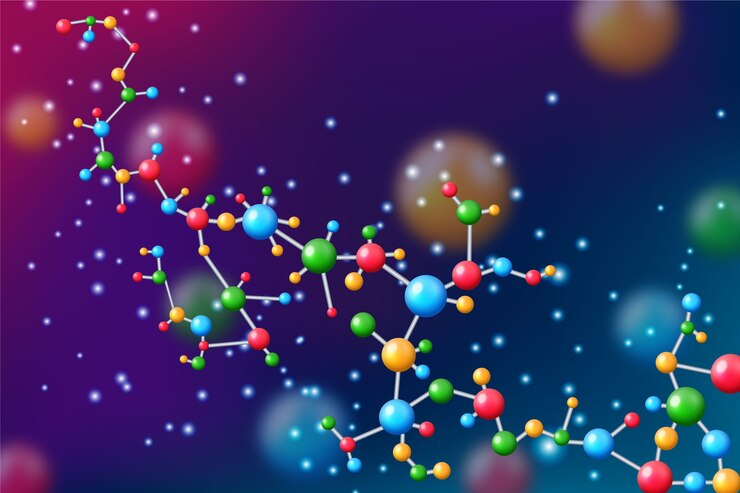Bio Science
Nano Science
anoscience involves understanding the principles, properties, and applications of materials and structures at the nanoscale. Nanoscience explores phenomena and behaviors that emerge when materials are manipulated and engineered at dimensions typically ranging from 1 to 100 nanometers (nm), where unique properties often arise due to quantum effects and increased surface area-to-volume ratios.
4.7 (253 user ratings)
★★★★★ 4.7/5
- 4.721 students
- Last updated 8/2022
Descriptions
Nanoscience is a multidisciplinary field that explores phenomena and manipulates materials at the nanoscale, typically ranging from 1 to 100 nanometers. It delves into the unique properties and behaviors exhibited by matter at this scale, often differing from those observed at larger scales. By employing techniques from physics, chemistry, biology, and engineering, nanoscientists investigate the synthesis, characterization, and application of nanomaterials, aiming to develop innovative solutions across various domains.
With advancements in nanoscience, researchers have made significant strides in fields such as nanoelectronics, nanomedicine, and nanotechnology. Nanomaterials have revolutionized industries by enabling the development of ultra-sensitive sensors, high-efficiency solar cells, targeted drug delivery systems, and lightweight yet robust materials. Moreover, nanoscience has paved the way for breakthroughs in fields like catalysis, energy storage, and environmental remediation, offering promising solutions to address pressing global challenges. As nanoscience continues to evolve, it holds immense potential to drive innovation and shape the future of technology, healthcare, and sustainability.

Course content
This module provides a foundational understanding of nanoscience, exploring the principles, theories, and applications of nanotechnology at the nanoscale level, and its interdisciplinary nature in fields like physics, chemistry, biology, and engineering.
Participants learn about various nanostructures and nanomaterials, including nanoparticles, nanotubes, nanowires, and quantum dots, and their unique properties, fabrication methods, and potential applications in electronics, photonics, medicine, and more.
This course covers the synthesis techniques for producing nanomaterials with controlled size, shape, and composition, such as bottom-up approaches like chemical vapor deposition, sol-gel, and top-down methods like lithography, self-assembly, and template-assisted growth.
Students explore advanced characterization techniques for analyzing the structural, chemical, and physical properties of nanomaterials, including microscopy (TEM, SEM), spectroscopy (XRD, XPS, Raman), and surface analysis (AFM, STM) methods.
Participants delve into nanofabrication techniques for patterning and manipulating nanomaterials and nanostructures with precision, including photolithography, electron-beam lithography, nanoimprint lithography, and molecular beam epitaxy.
This module focuses on nanoelectronics and nanoscale devices, covering the principles, design, and fabrication of nanoscale electronic components such as transistors, sensors, memory devices, and quantum computing architectures.
Students learn about nanophotonics and plasmonics, exploring the manipulation of light at the nanoscale using engineered nanostructures and materials for applications in optical communication, sensing, imaging, and photonic devices.
This course examines nanomagnetics and spintronics, studying the behavior of magnetic materials and spin-dependent phenomena at the nanoscale, and their potential applications in magnetic storage, spin-based electronics, and quantum computing.
Participants explore the intersection of nanotechnology and biotechnology, focusing on the design, synthesis, and application of nanomaterials and nanostructures for biomedical imaging, drug delivery, tissue engineering, and diagnostics.
This module addresses the potential risks and environmental impacts associated with nanomaterials, covering topics such as nanotoxicity, exposure assessment, risk assessment, and regulatory considerations for safe nanotechnology practices.
Students study nanoscale energy systems and devices, including nanoscale photovoltaics, thermoelectrics, and fuel cells, exploring their enhanced performance, efficiency, and potential for renewable energy generation and storage applications.
This course explores nanofluidics and nanosensors, focusing on the manipulation of fluids and particles at the nanoscale and the development of high-sensitivity, label-free nanoscale sensors for detecting biological, chemical, and environmental analytes.
Participants examine the role of nanomaterials in catalysis and chemical reactions, exploring their unique catalytic properties, surface chemistry, and applications in energy conversion, environmental remediation, and industrial processes.
This module covers self-assembly and nanomanufacturing techniques for organizing and assembling nanoscale building blocks into functional structures and devices, including DNA origami, molecular self-assembly, and bottom-up fabrication methods.
Students learn about nanocomposites and advanced materials incorporating nanomaterials for enhanced mechanical, thermal, electrical, and optical properties, and their applications in aerospace, automotive, construction, and electronics industries.
This course explores the applications of nanotechnology in medicine and healthcare, including targeted drug delivery, imaging contrast agents, therapeutics, diagnostics, and personalized medicine approaches for disease treatment and management.
Participants delve into nanoscale metrology techniques and standards for measuring, characterizing, and validating nanomaterials and nanodevices, ensuring accuracy, reproducibility, and quality control in nanotechnology research and development.
This module focuses on the commercialization of nanotechnology innovations, covering technology transfer, intellectual property, funding sources, market analysis, business models, and entrepreneurship opportunities in the nanotech industry.
Students apply their knowledge and skills in nanotechnology to real-world projects, designing and implementing innovative solutions, conducting experiments, analyzing data, and presenting findings to address practical challenges and explore emerging opportunities in nanoscience and nanotechnology.
₹ 5000/-
- 2 projects-minor and majors
- LMS access 24/7
- Q&A sessions
- Reports and Analysis
- Tests and Assignments
- 25+ Live recorded sessions
- 25+ Live recorded sessions
- Course Completion Certificate
- Internship Training Certificate
- Letter of Recommendation
- 3 Live Industrial Expert sessions
- Placement Training
share it :
Start your learning journey today! Enroll now in our online course.
What they say about us
Robotics course was an excellent introduction to the field, with engaging hands-on projects and knowledgeable Instructors

I enrolled in the Genetic Engineering course, the theory part was no doubt amazing, out the WetLab experience was awesome!

I recently completed the Al program with Vaidhik , and my experience was highly positive. The content was comprehensive, covering essential Al concepts seamlessly. The availability of resources and support contributed significantly to my success. Overall. I highly recommend Vaidhik Al program for anyone looking to delve into this field.

The online training program from vaidhik EduTech exceeded my expectations. The comprehensive curriculum covered everything from basics to advanced topics, and the interactive virtual labs provided a real-world simulation.

This was a great experience to do such an internship with vaidhik EduTech. Like at the beginning of the course I was not at all aware of Al, ML . But after completion of this course, I was filled with a bounty of knowledge. specifically, if I say about the class conductance and the way so it was awesome like to study online with such highly qualified teachers was an amazing experience, and classes were scheduled in time .


